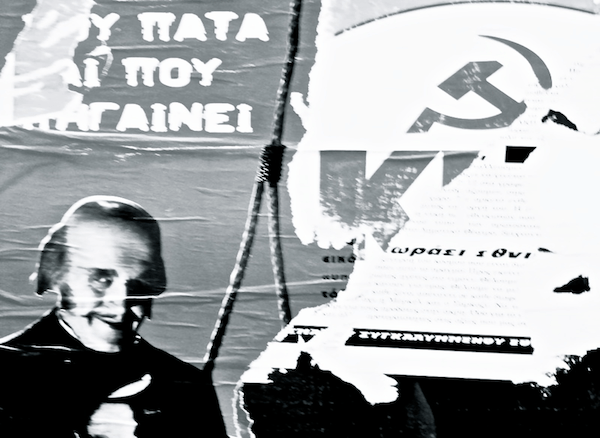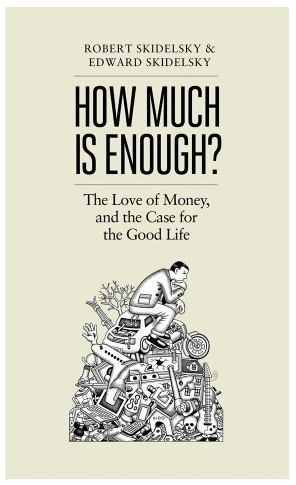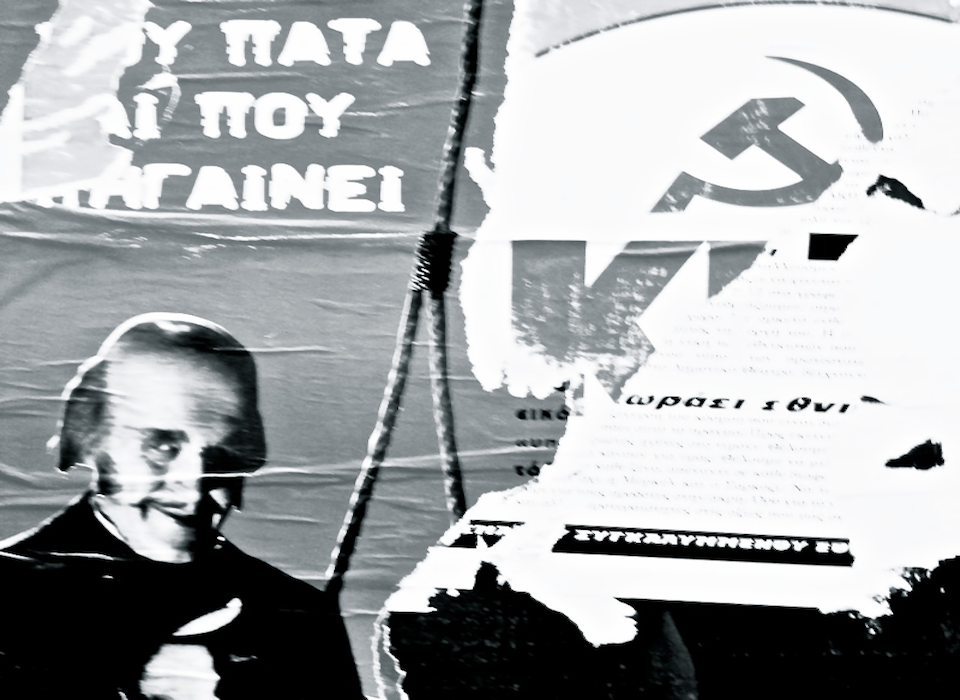Thinking beyond the model with Robert and Edward Skidelsky's latest book.
Those who labour work more and earn less, while they are less and less insulated from the vagaries of the market. At the same time milions of Europeans are forced to sit idle and jobless: competitiveness and technological innovation create unemployment instead of fuelling development. Exploring a post-capitalist model, and bringing Humanity and Reason back in.
Denouncing the failure of austerity in Europe is now almost banal, as is the widely held view that where the left-right political antagonism is wading in the name of fiscal ‘rectitude’, while new and old forms of populisms are rising. What is nevertheless shocking is that while the paradoxical effects of austerity are criticised even by the mainstream press, TINA (There Is No Alternative) is ever more with us. I suspect it is not simply a matter of lack of imagination on the part of progressive forces, or the consequence of the weakening of workers’ organisations and solidarities (although this clearly plays a role). As Slavoj Zizek reminds us, when asked about the horseshoe he kept over his house door, Bohr answered he was certainly not superstitious, but he was told that it would work also for those who don’t believe in good and bad luck. Apparently austerity “works even if you don’t believe in it.” I am slowly succumbing to the idea that the real cultural hegemony of our times is not a positive one, an ideology based on the reproduction and legitimization of a specific organisation of society, but rather resigned and enraged passive acceptance of the current state of affairs as the only game in town, an unmodifiable destiny. One may not like it, one may even hate it, but the current state of relations between human beings is perceived as objective and firm as the stars and the sun. Post-modernity is in this context the most refined form of ideology around: the refusal of a theoretical understanding of totality, of how the real relations between humans develop, reflects an understanding of society as atoms which interact with each other guided solely by their multi-faceted individual needs and desires regulated by an increasingly unstable world market.

The really existing social relations model is clear: those who labour work more and earn less, while they are less and less insulated from the vagaries of the market. At the same time milions of Europeans are forced to sit idle and jobless. The contradictions of capitalism are ever more glaring: competitiveness and technological innovation create unemployment instead of fuelling development. In a world of potential material abundance in which scarcity is artificially imposed upon society by capital, perhaps the radical John Maynard Keynes of “Economic perspectives of our grandchildren” is whom we should turn to if we want to get a better grasp of our current predicament. Robert Skidelsky (the greatest biografer ot JMK) and his son have attempted to do so in their latest inspiring book “How much is enough? Money and the good life”. There, they outline Keynes’ enlightenment project: using the tools of the state to bring society beyond the realm of necessity, towards what Marx would call the realm of freedom. Keynes and Marx meet here in describing the contours of what a post-capitalist world would be. A society in which capital does not accumulate endlessly and pointlessly must be a post-capitalist one, one defined by a univeral reduction of work, together with more time and space for leisure and the development of a pedagogy of leisure (after centuries of toil, we need to teach ourselves how to enjoy a form of leisure that is not confined to afternoon television). If humans cannot learn to do this, to live beyond the endless pursuit of money via salaried labour, and enjoy what Keynes called “the good life,” then perhaps the modern project in itself is a failure. That is the central argument of the book.
To be able to even think about such a future, we need to engage once again with concepts such as Humanity and Reason and in a battle that is not only against the discipline of economics but also against post-modernism. On the other hand, what Keynes – and the two authors – overlook is the obvious point: where is the political subject that is to take us to that utopian future?

How Much is Enough? The Love of Money, and the Case for the Good Lifeby Robert Skidelsky & Edward Skidelsky, Penguin Books, 2012
